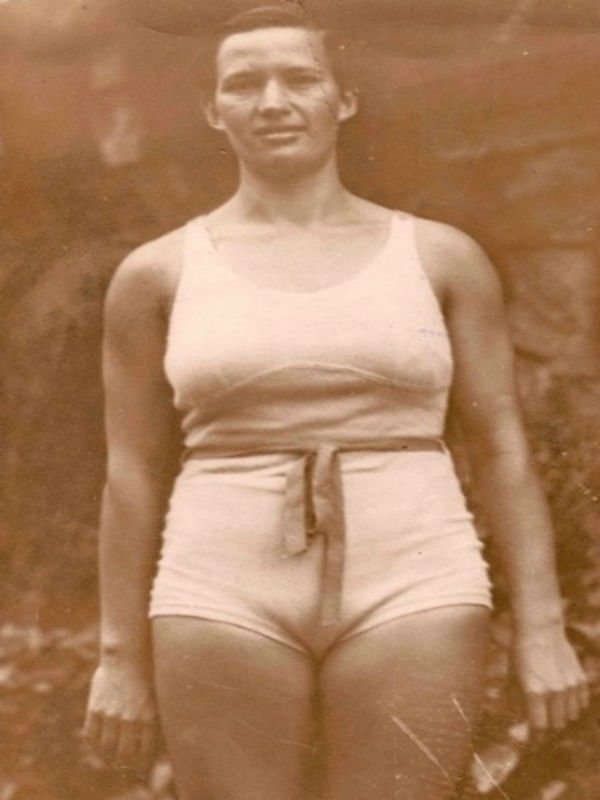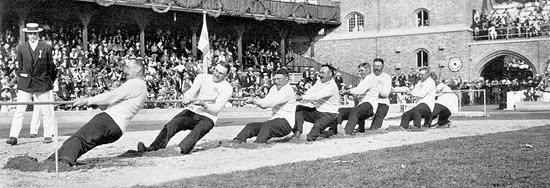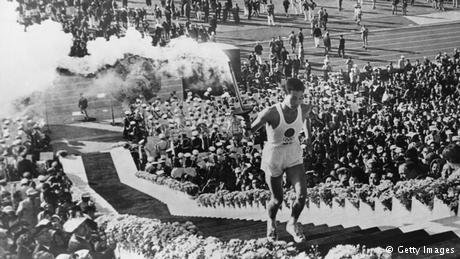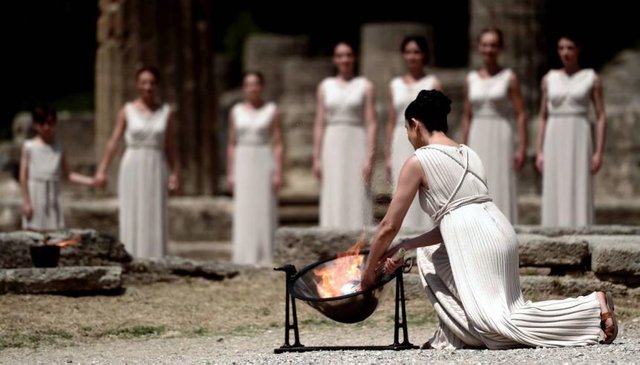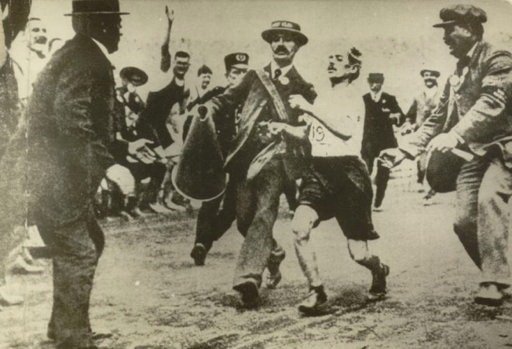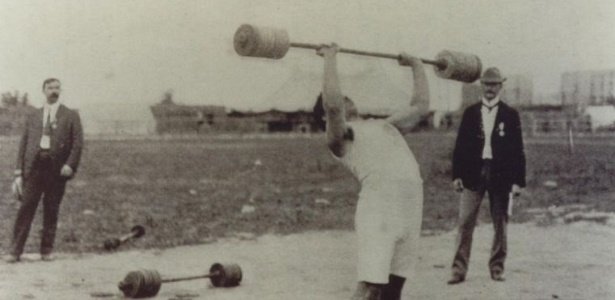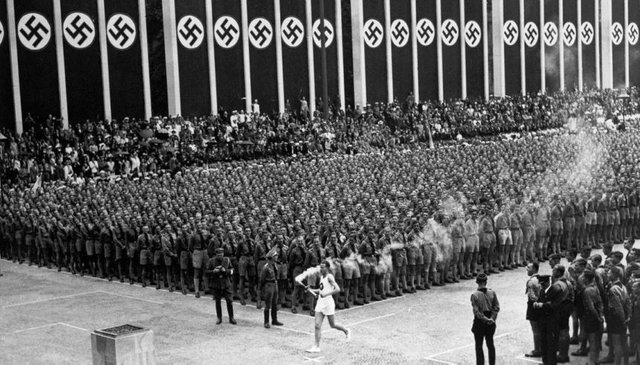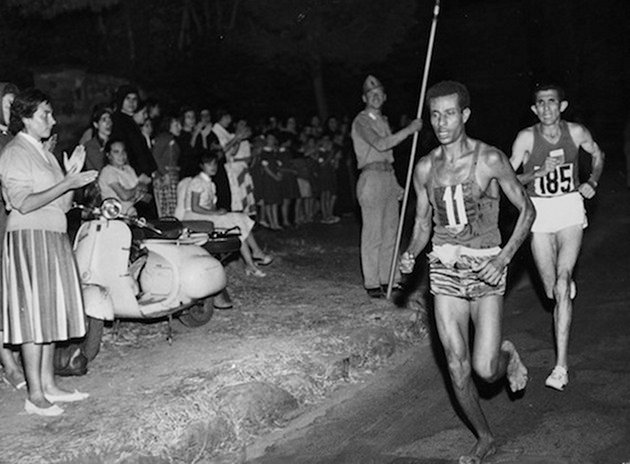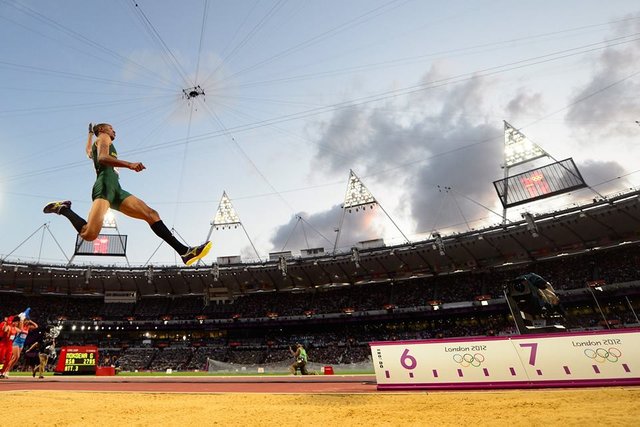Curiosities of the Olympics
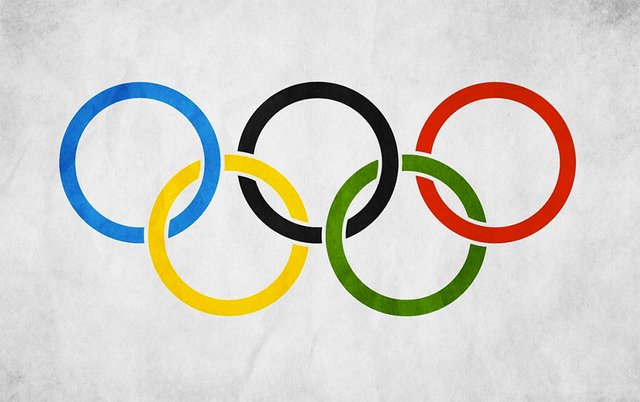
The stage of the first Olympics of the modern era, held in Athens in 1896, was the Panathenaic Stadium. The base of the stage was composed of a marble structure, made in the fourth century B.C.
The Cape War was an Olympic sport between the years 1900 and 1920.
In the Olympic Games opening ceremony of the athletes of the delegation of Greece are the first to parade. Logos comes after the athletes of the host country and following the other countries in alphabetical order.
It was only from the London Olympics (1908) that the athletes began to parade in an organized manner at the opening ceremony. Before 1908, the athletes entered and left the stadium without any organization.
The motto of the Olympic Games, "Citius, Altius, Fortius," was created by Frenchman Henri Didon for games of Paris (1900). The motto, which translated means "faster, higher, stronger" is used to the present.
Only five countries participated in all the Olympic Games of the modern era. They are: Greece, Great Britain, Switzerland, France and Australia.
In ancient Greece, the Greek athletes were several prayers to the gods of Olympus for the games happen without probleas and fairly.
The famous phrase "The important thing is not to win is to participate" is authored by a bishop of Pennsylvania (USA) is was pronounced in a speech to the athletes before the London Olympics (1908).
The famous Olympic flag with five arches representing the continents, was drafted by Pierre de Coubertin in 1913. It was raised for the first time at the Olympic Games in Antwerp in 1920.
The Olympic flame was introduced for the first time in Olympic ceremony in the Olympic Games 1928 in Amsterdam.
In 1916, they were not conducted the Berlin Olympics due to the First World War.
The Olympics 1944, which should take place in London were also canceled because Europe was almost all involved in World War II.
In the first Olympics of the modern era, in the early twentieth century, all medals were given to the athletes at the closing ceremony of the Olympic Games.
It was only the Olympic Games in 1932 (Los Angeles) that winning athletes began to hear the anthem of your country and see the raising of the flag at the time of delivery of the medals on the podium.
Several curious modalities have been part of the Olympics: Twelve Hours of Cycling (1896), weight lifting with only one hand (1896-1904), cable War (1900-1920), Shooting pigeon (1920) and Free Flight glider (1936), Palm Game (1908), Powerboating (1908) and javelin and disc with both hands (1912).
At the Olympics in Melbourne (Australia) in 1956, a Czech athlete and an American dated in the Olympic Village. At the height of the Cold War, dating caused a diplomatic incident between the two countries.
The biggest win occurred at a football game during the Olympics took place in 1908 (London Olympics). At the time, Denmark beat France by the impressive score 17-1.
During the Olympic Games in Tokyo (1964), a Japanese judoka committed suicide after being defeated in a fight.
At the Olympics in Stockholm (Sweden) in 1912, a Portuguese marathon runner collapsed during a race and died the next day in hospital. heatstroke was identified as the cause of death.
The Swede Oscar Swahn was the oldest athlete to win a medal in the Olympics. At age 72, he won a silver medal in the shooting competition during the Olympics in Antwerp (Belgium) in 1920.
The first woman to win a gold medal in the history of the Olympic Games was the British Charlotte Cooper. He won the tournament in women's tennis at the Olympics in Paris (1900).
The first Brazilian to win a gold medal at the Olympics was Guilherme Paraense. The feat was accomplished in the test shot during the Olympics in 1920 in Antwerp (Belgium).
The swimmer Maria Esther Bueno was the first Brazilian to participate in the Olympic Games. The historic event took place in the Olympic Games of Rome 1960.
The athlete who won more Olympic medals was the American swimmer Michael Phelps. At the Olympic Games in Athens (2004) and Beijing (2008) he won a total of 16 medals. In the London Olympics, the swimmer won another six medals (with 4 gold and 2 silver), totaling 22 Olympic medals.
After winning the gold medal in the 200 meters medley, the American swimmer Michael Phelps became the first Olympic triple champion in the same swimming test.
It was only from the London Olympics (1948) that the swimming events began to be held in pools.
The Olympic torch relay ceremony, which takes place days before the games began to be practiced only at the Berlin Olympics (1936).
The first athlete to win a gold medal in the history of the Modern Olympic Games was the American James Connolly. The conquest took place in the Athens Olympics 1896, in the triple jump event. In the same event, Connoly won two medals: silver in the long jump and put up with bronze in the long jump.
Athletes who domonstram Olympic spirit during the games are awarded by the IOC (International Olympic Committee) with the Pierre de Coubertin medal.
The Tokyo 1964 Olympic Games were the first to be broadcast via satellite television.
The country that won medals in Olympic history was the United States. Even the Olympic Games in London (2012), the Americans won 2399 Olympic medals (974 gold, 758 silver and 667 bronze).
In the ranking of medals won, Brazil is in 36th place. Even the London Olympics (2012), Brazil had won 111 medals (23 gold, 34 silver and 54 bronze).
To ensure security during the London Olympics 2012, the British government has installed missiles in residential buildings in the area east of London.
Los Angeles (USA) was the city that more often applied to host the Olympic Games. There were nine candidates being chosen twice.
The London Olympics 1948 were the first to be televised for private homes.
The only host country not won Olympic medal in their own Olympics was Canada. The unprecedented and negative result was obtained in the Montreal Olympics in 1976.
London Olympics The 1908 have been the longest in history. They started on April 27 and ended on October 31.
At the Olympic Games in Rio 2016, two sports will return to the Olympic sports board after many years. Rugby returns to the Olympics after 92 years. But the Golf returns after 112 years.
In the Seoul Olympics in 1988, during the opening ceremony, several doves were burned to death in the fire of the Olympic cauldron. Since then, the flight of pigeons no longer required at the opening ceremony.
Throughout the history of the Olympic Games of the modern era (until 2012), 144 countries have won medals.
The Olympics in Rio de Janeiro in 2016, probably will hit a record number of participating countries. 206 countries athletes are expected.
The 2016 Olympic Games to be held in the city of Rio de Janeiro will be the first edition of this event in South American territory.
Up to the 2016 Olympics were held 27 editions of the Modern Era of Olympic Games (16 in Europe, 6 in North America, 3 in Asia and 2 in Oceania).
During the Olympics, the athletes are staying in the Olympic Village. In addition to lodging, it athletes are all necessary infrastructure, for example, shops and places of service. It works like a mini-city. Generally, the Olympic Village is located next to the Olympic stadium.
See some images of the Olympics
